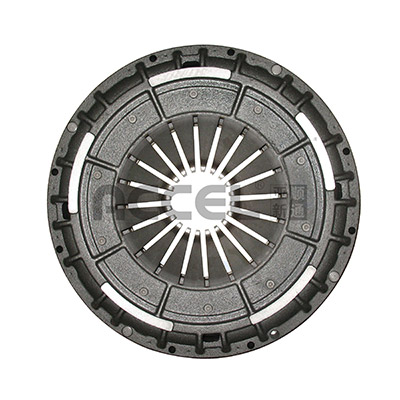Mobile:+86-311-808-126-83
Email:info@ydcastings.com
monoblock pump impeller
Exploring Monoblock Pump Impellers Design, Function, and Applications
Monoblock pumps, known for their compact and efficient design, play a crucial role in various industries, from agriculture to manufacturing. At the heart of these pumps lies the impeller, a crucial component that drives fluid movement. Understanding the design, function, and applications of monoblock pump impellers can provide significant insights into their operation and efficiency.
What is a Monoblock Pump?
A monoblock pump is a type of centrifugal pump where the motor and pump are integrated as a single unit. This design often leads to reduced installation space and lower maintenance requirements compared to traditional pump setups. The impeller is typically mounted directly on the motor shaft, allowing for minimal energy loss in the transfer of power from the motor to the pump. This configuration offers a range of advantages, including reduced vibration, quieter operation, and improved overall efficiency.
The Role of the Impeller
The impeller is the component responsible for imparting kinetic energy to the fluid, converting the input energy from the motor into fluid motion. The design of the impeller is critical, as it determines the pump's performance characteristics, including flow rate and total dynamic head. Monoblock pump impellers are often designed with specific geometries that optimize these characteristics for particular applications.
1. Types of Impellers Impellers can be broadly classified into two categories semi-open and closed impellers. Semi-open impellers have one side open, allowing for solids to pass through, which makes them suitable for applications involving dirty or viscous fluids. Closed impellers, on the other hand, provide better hydraulic efficiency and are commonly used for clean fluids under higher pressure conditions.
2. Material Considerations The materials used in impeller construction can vary based on the application requirements. Common materials include stainless steel, cast iron, and various plastics. The choice of material impacts the impeller's resistance to corrosion, wear, and overall durability, making it vital to select the right material for specific operating conditions.
monoblock pump impeller

Efficiency and Performance
The efficiency of a monoblock pump is significantly influenced by the design of the impeller. Optimization in impeller design aims to enhance the hydraulic efficiency, which in turn minimizes energy consumption. Factors such as the shape, size, and angle of the impeller blades are meticulously analyzed using computational fluid dynamics (CFD) to achieve optimal performance.
1. Pump Curves Understanding pump curves is essential for evaluating the performance of monoblock pumps equipped with various impeller designs. These curves illustrate the relationship between flow rate and head, allowing engineers to analyze the pump's efficiency across different operating conditions. By choosing the right impeller design, one can ensure that the pump operates within its optimal range, thus maximizing performance and minimizing energy costs.
Applications of Monoblock Pump Impellers
Monoblock pumps with tailored impellers find applications across diverse sectors
- Water Supply In municipal water systems, monoblock pumps are utilized for boosting water pressure and ensuring constant supply throughout the network. - Agriculture These pumps are frequently employed for irrigation purposes where reliable fluid transfer is fundamental for crop production. - Industrial Processes Many manufacturing processes require the efficient movement of liquids, for which monoblock pumps are ideally suited due to their compact design and reliability. - HVAC Systems In heating, ventilation, and air conditioning systems, monoblock pumps assist in circulating fluids, maintaining desired temperatures in building environments.
Conclusion
Monoblock pump impellers represent a critical component in the efficient operation of these pumps, fundamentally influencing their performance and application suitability. By focusing on the design, material selection, and operational efficiencies of impellers, industries can ensure optimal pump performance, leading to reduced energy consumption and improved system reliability. As technology progresses, innovations in impeller design will likely continue to enhance the efficiency and effectiveness of monoblock pumps, making them even more integral to modern industrial processes. Ultimately, understanding the intricacies of monoblock pump impellers is essential for anyone involved in fluid dynamics or pump engineering.
-
Understanding Metal Casting TechniquesNewsApr.02,2025
-
Understanding Exhaust Manifolds for Enhanced Engine PerformanceNewsApr.02,2025
-
The World of Metal FabricationNewsApr.02,2025
-
Key Components for Pump and Turbo EfficiencyNewsApr.02,2025
-
Essential Tools for Automotive Maintenance and RepairNewsApr.02,2025
-
Durable Valve Components for Effective Water ManagementNewsApr.02,2025











